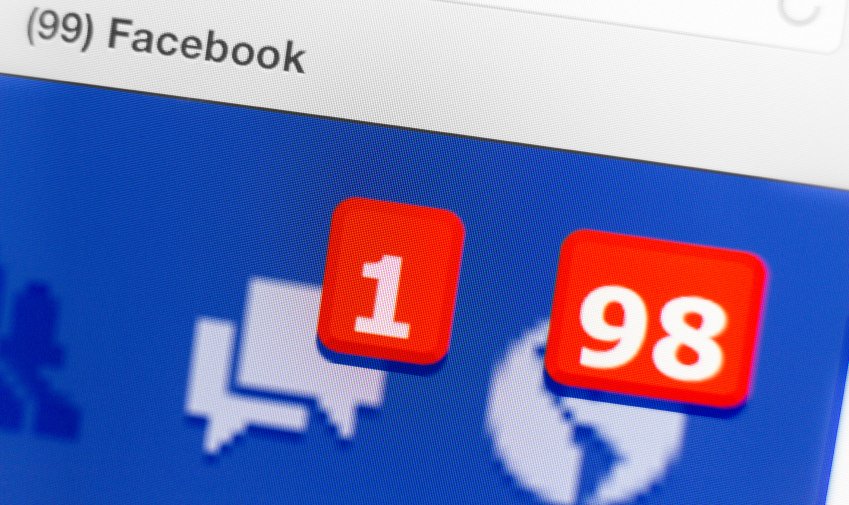By:
- Inga Kiderra
Published Date
By:
- Inga Kiderra
Share This:
Facebook Beats Books - and Faces - in Memory Test

©iStockphoto.com/Muhla1
If this were a Facebook post, you would remember it – better than a stranger’s face or a line from a published book.
That, in fewer than 140 characters, is the finding of research from the University of California, San Diego and the University of Warwick, published in the Springer journal Memory & Cognition.
Oh, and: The small, social-networking faux pas you were hoping would fade from your friends’ memories real soon…? Don’t count on it. Sorry. :/

Laura Mickes
In “Major Memory for Microblogs,” the researchers report that Facebook status updates were about one and a half times more memorable than sentences from books and almost two and a half times more memorable than faces. And these were not the status updates of the study participants’ friends but rather 200 anonymous posts (gathered by undergraduate assistants blind to the hypothesis). The tests were self-paced recognition tests.
“We were really surprised,” said first author Laura Mickes, doctoral alumna of UC San Diego’s department of psychology, now a visiting scholar at UC San Diego and a senior research fellow at the University of Warwick. “These kinds of gaps in performance are on a scale similar to the differences between amnesiacs and people with healthy memory.”
Mickes, along with senior authors and UC San Diego psychology professors Christine Harris and Nicholas Christenfeld, wondered what it was about the Facebook updates that made them so memorable: Brevity? That they were complete thoughts? Gossipy, chatty, what?
First, the researchers made sure that the posts didn’t differ substantially in length from published book sentences. Then they removed all orthographic irregularities that are pretty standard in informal digital communication – emoticons, all-CAPS, multiple exclamation points and the like – in case these were providing a mnemonic advantage. Still and still, Facebook posts were significantly more memorable.

Nicholas Christenfeld
“Not only is the ‘Facebook effect’ on memory strong,” said Harris, “but we replicated the effect each time we examined it.”
The possibility that Facebook-styled language was stimulating people to think in social terms – reminding participants of familiar people or even characters, which is known to strengthen memory – was also tested and didn’t seem to account for the difference.
Investigating further, the researchers ran some follow-up experiments. They compared recognition of CNN headlines, sentences drawn from CNN stories and reader comments on those stories, in two categories: Breaking News and Entertainment.
As expected, headlines were more memorable than random sentences, supporting the notion that at least some of the memorability of Facebook posts is due to their completeness. Entertainment headlines and sentences were more memorable than the hard-news ones, supporting the idea that “gossipiness” probably contributes to memorability, too.
But most striking was that reader comments were the most memorable of all. Like Facebook posts, reader comments were remembered exceptionally well.

Christine Harris
Why? Because, the researchers suspect, these digital communications are “mind-ready.” Virtual chatter is pretty close to actual chatting in real life – to what we “naturally put out.” Language we generate without much effort, it seems, is both what we ingest most willingly and readily – and what we remember best.
“Facebook is updated roughly 30 million times an hour so it’s easy to dismiss it as full of mundane, trivial bits of information that we will instantly forget as soon as we read them,” Mickes said. “But our study turns that view on its head, and by doing so gives us a really useful glimpse into the kinds of information we’re hardwired to remember.”
Our language capacity did not evolve to process carefully edited and polished text, said UC San Diego psychology professor Christenfeld. “One could view the past 5,000 years of painstaking, careful writing as the anomaly. Modern technologies allow written language to return more closely to the casual, personal style of pre-literate communication. This is the style that resonates, and is remembered.”
So, a couple of lessons, then. For those in education, advertising, communication: Relax. Write and present as effortlessly as you can. And for denizens of the digital 21st century in general: Stop for a sec. Pause before you hit that button to post the latest emanation of your mind. It won’t be soon forgotten.
Share This:
You May Also Like
Stay in the Know
Keep up with all the latest from UC San Diego. Subscribe to the newsletter today.



